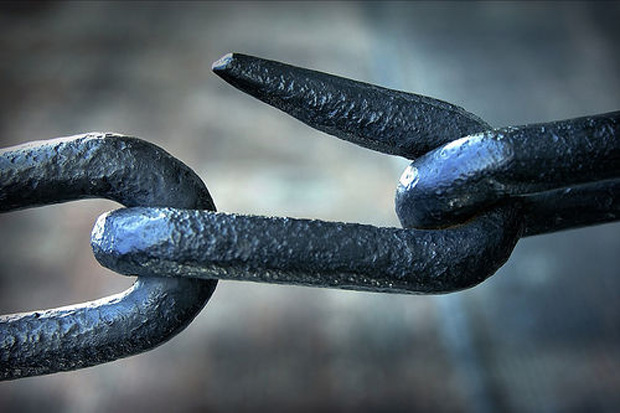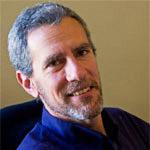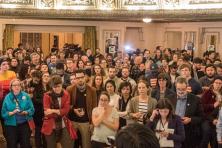Go Fossil Free took a big leap forward last week as Stanford University announced that it will purge coal stocks from its endowment portfolio. And Massachusetts Governor Deval Patrick, in a commencement address at Amherst, set his sights on a “future free of fossil fuels.”
Divestment is more than a tactic in the climate battle. In a broad sense, it’s the whole game. Because what’s holding us back is our own money and power, turned against us. Our buildings and vehicles and 401ks siphon our money to our opposition and sap our will for change. We’re too invested in dependence on fossil fuels.
Of course the “real” solutions – the most important things we need to do – are the policy changes that will drive a clean energy revolution: steadily improving performance standards for energy production and use, clean energy R,D&D, and a ban on new fossil fuel infrastructure investments that “lock in” dangerous emission levels. Above all, we need a commitment to do the whole job: responsible limits on climate pollution, and carbon prices that tell the truth about carbon costs.
We haven’t won enough of those policy changes yet because we’ve been stymied by the concentrated economic and political power of fossil fuel industries. And why do they have so much power? Because they’ve stolen ours, and they keep stealing it. The money they use to pay for climate science denial and opposition to climate policy is our money.
Notice the revolutionary potential here: The fossil fuel industry does not have enough money or power by itself to stop climate solutions. It only wins by continuously arrogating our power and using it against us.
We buy and burn their product. We need their stuff to chill our beer, light our homes, and get from point A to point B, because they have systematically blocked the path to better alternatives. Our retirement savings are their capital pools, and only now are fossil-free investment vehicles beginning to emerge. We feed the beast because it’s hard not to, …because the beast feeds us.
This puts us in a compromised, confused, and ineffectual position when it comes time to break free. Harvard University President Drew Faust elucidated that position in her statement rejecting fossil fuel divestment.
“I find a troubling inconsistency in the notion that, as an investor, we should boycott a whole class of companies at the same time that we are extensively relying on those companies’ products and services for so much of what we do every day. Given our pervasive dependence on these companies for the energy to heat and light our buildings, to fuel our transportation, and to run our computers and appliances, it is hard for me to reconcile that reliance with a refusal to countenance any relationship with these companies through our investments.”
Even as we resist the power of fossil fuels over our future, we underwrite it. We hesitate to fully commit ourselves to the fight because we are in some sense on the other side.
And wait, the circle gets even more vicious. We know we feed the problem, so we feel implicated. The cycle of involuntary complicity is locked in place with psychological cement: guilt. Zadie Smith explains in “Elegy for a Country’s Seasons”:
“I don’t think we have made matters of science into questions of belief out of sheer stupidity. Belief usually has an emotional component; it’s desire, disguised. Of course, on the part of our leaders much of the politicization is cynical bad faith, and economically motivated, but down here on the ground, the desire for innocence is what’s driving us…
For both ‘sides’ are full of guilt, full of self-disgust…and we project it outward. This is what fuels the petty fury of our debates, even in the midst of crisis.
Oh, what have we done! It’s a biblical question, and we do not seem able to pull ourselves out of its familiar — essentially religious — cycle of shame, denial, and self-flagellation.”
This is the ultimate stranglehold, the perfect heist of our power. Instead of anger, we harbor regret. Instead of resolve, we exhibit futility. Instead of engaging, we evade. Instead of hope, we feel shame.
To turn this power-sucking cycle around, we need to divest. We need to take our money and our power back. We need to separate ourselves from what’s killing us so we can kill it first.
As a power-building strategy, divestment is particularly efficient, because it takes back power that we currently give away. It’s a two-fer: we get more and our opponents get less. And, crucially, we start to build the power that comes from getting clearer about which side we’re on.
Selling off our equity stake in the most egregious perpetrators of the climate crisis is a terrific way to start separating our own will, our intention, and our money from the problem. And since the fossil fuel industry wages war on truth in order to preserve our dependence, our institutions of higher education — which exist to serve truth — are the perfect place to begin divesting.
FAQs
- If we divest our portfolios, don’t we have to divest our energy supplies right away too? Wouldn’t it be hypocritical to drive to the store in an oil-powered vehicle?
No, for Heaven’s sake, lighten up! We start from where we are. Every time we take a little of our money and power back, we make it a little more possible to get the rest. We move forward. (But we draw a bright line against new, long-lived capital infrastructure investments that make the problem intractable. Like Keystone XL.)
President Faust’s “troubling inconsistency” is exactly the point of divestment. The campaign shines a bright light on the root of the problem – our unwitting commitment to empower the forces that block solutions. Divestment presents a specific opportunity to reverse that commitment, to take some of our money back. Should we decline to do that because we are not yet in a position to take ALL of it back immediately? We’ll never get anywhere that way!
- Should we feel guilty about our continuing complicity in the climate crisis in the meantime?
Feel whatever makes you most determined to stand up and fight for solutions. Maybe for some people that’s guilt. Not me; as the son of a Jewish mom, guilt just turns me into an adolescent. I pout and withdraw.
Personally, I’ll take freedom. I don’t beat myself to a pulp with recrimination every time I fill up at a gas station. But mostly I get around just fine on my bike and on transit. And I’ve got a 2-year lease on a Nissan Leaf, which I fill up with carbon-free Seattle City Light electricity. Now, I go to the gas station, fill up my tires, clean my windshield….and Leaf!
- Do I feel smug about that? Righteous?
Not a bit. I still consume way more fossil fuel than the average human can if we’re going to have a future. I feel trapped and implicated and pissed because most of the practical, available, affordable technology and lifestyle choices still require too much fossil fuel.
But steadily, I’m finding more ways to shake free — fewer trips to the gas station, less carbon in my power supply, more ways to get the grimy grip of climate-destroying fossil fuels off me, off my grandkids’ necks.
And when I divested my 401k from fossil fuels, I stood up a little straighter, saw a little more light at the end of the tunnel. It didn’t affect fossil fuel stock values. But it deprived the coal and oil industries of some part of one person’s ambivalence and confusion and demoralization – the cynicism that sustains their grip on power.
- Am I saying that because I want you to feel bad if you haven’t done any of those things yet?
No. I just want to tell you how good it feels when you do. I notice a strong correlation between my divestment from the problem and my sense that we might win solutions. It builds mojo.
- Yes, but that’s “just symbolic,” right? Isn’t divestment kind of a distraction when we should be devoting all of our finite resources to winning a comprehensive climate policy?
The road to big policy solutions is blocked. We’re having trouble clearing it in part because we’re standing in it ourselves. Map the power:
- Why don’t we have a comprehensive climate policy now? Because the fossil fuel industry has too much power.
- Why? Because they stole our power.
- How? By blocking solutions so that every time we try to break free, we end up chasing our tails about “troubling inconsistencies.”
What will happen when we propose a cap and a price on carbon? Big Fossil will attack it with a $ zillion ad buy accusing us of raising gas prices, punishing poor people, stealing jobs. And it will work because we are stuck in a cycle of “pervasive dependence” on fossil fuels. Pricing carbon is too easily portrayed as blaming and penalizing us for living our lives.
How will we position ourselves to prevail in the face of that? By asserting our freedom, taking our money and power back. By establishing that the only way to avoid being the victim of high fossil fuel costs is to break free of them, and that carbon pricing is a vital part of how we cut the chains. The point isn’t to pay more for fossil fuels. It’s to pay — and need them — less. As the Metro Bus ads in Seattle say: Gas is cheap when you don’t use it.
For now though, they own us in part because we own them.
Hence, today, divest.
Originally posted at Getting a GRIP on Climate





